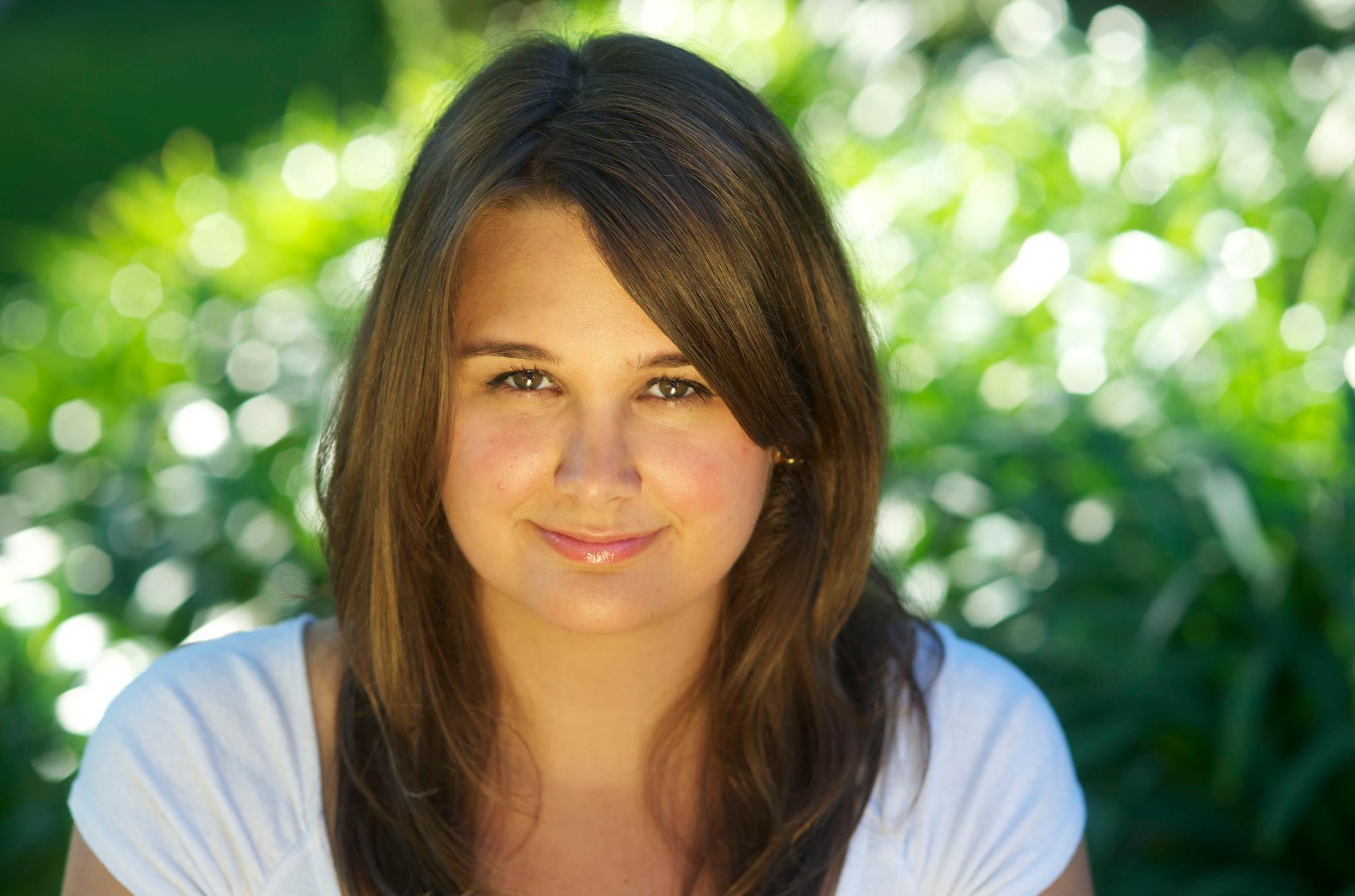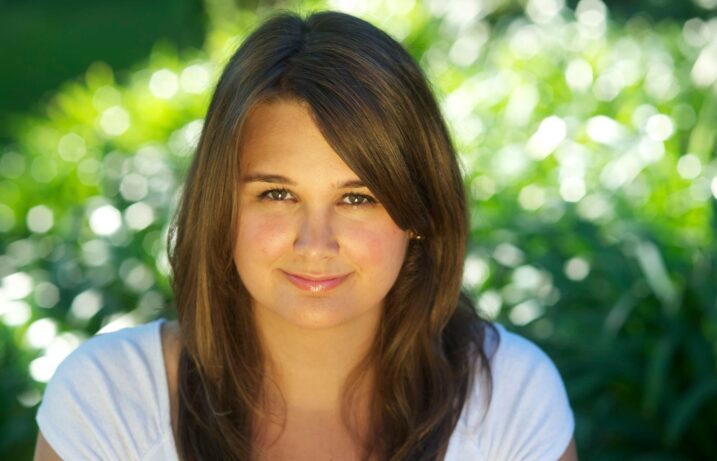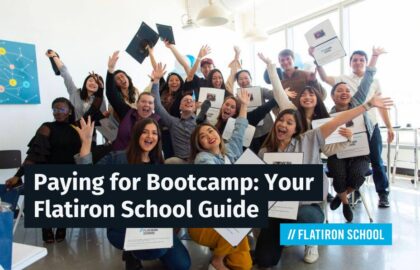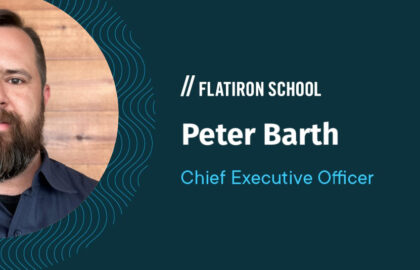Anne Lindsley never thought she was cut out to be a programmer. As someone who rafts, hikes, and camps, however, she never had a shortage of an adventurous spirit. And after working around mobile developers for a period of time, her thinking around a possible career in programming began to change. Anne opened up to Flatiron School about how she got into iOS programming, and how she's never looked back since.
How did you get interested in the iOS program?
I was running a yoga video startup. I hired outside developers to make our apps, which was crucial, because the emphasis was yoga on the go. At that time, I was also evaluating what I wanted to do with my life. I had no computer science experience at all and the Flatiron School happened to be the only school in the US at the time that offered an iOS development immersive for people with no programming experience. I wasn’t sure if I was going to get in — I thought, “I don’t know if I can do this!”
What was it like once you finally dug into it for the first time?
The first few weeks were hard for me — until I got to UI (user interface). Suddenly I thought, “This makes sense!” That’s kind of what I do with my job now.

“The biggest skill I brought back (from the program) was definitely learning how to learn in a more self-directed sort of way.”
Of the skills that you gained in the iOS program, which have you carried on with you?
The biggest skill I brought back was definitely learning how to learn in a more self-directed sort of way. Pair programming was really big for me because I had done group work in college and in my job, but sitting there and working with people and coming up with a solution was really exciting for me.
Tell me about your job now.
I’m a junior iOS developer at Dado Labs, and I specialize in user interface. Since I’m responsible for front-end screens, I work closely with the designer and the lead dev designer. They mockup screens, then I go over them and figure out what the thoughts, colors, and assets will be. I love hanging out with the designers and just figuring out how we’re going to make it all work and feel.
Since iOS development entails both iPhones and iPads, what are some of the fun aspects of working with iPads?
In some ways, we try to take more advantage of the screen real estate. For that we get to use modal popups and a lot more overlays and blurs. Anytime you get more of a screen, you can do more stuff with it.
“One of my vices that kept me from learning programming sooner I didn’t think I would fit in, and that hasn’t been the case.”
Where do you see yourself going with this in five years?
Professionally, I love doing iOS development. I would love to start learning Android so I can really own the mobile space, but I want to stick towards the user interface of devices — that’s my jam. I’m also considering getting a masters in Computer Science so I can have a better sense of architecture, and greater oversight and planning.
What would you be doing now had it not been for the program?
I think I would have been doing some kind of management or social media marketing or digital strategy — all things I was interested in before I started running a yoga video company. But I love being a developer and creating things. I love building.
Developing has traditionally been pretty male-dominated. What would you say to women who are intimidated to take the iOS immersive?
One of the big reasons I didn’t study CS in college was because I never really thought I was quite bright enough. I was fine at math, but you actually don’t need to be good at math — you just need to be logical. If you can do logical processes, you’d be qualified to learn development because it’s not some obscure, impossible thing to do.Also, I was worried before that it wouldn’t be a cultural fit for me. I thought it was gamer dudes hanging out and that it would be aggressive, that other devs couldn’t be my people of my community. I found at Flatiron School that wasn’t true. My classmates were incredibly welcoming and I really liked them. That was one of my vices that kept me from learning programming sooner — I didn’t think I would fit in, and that hasn’t been the case.




